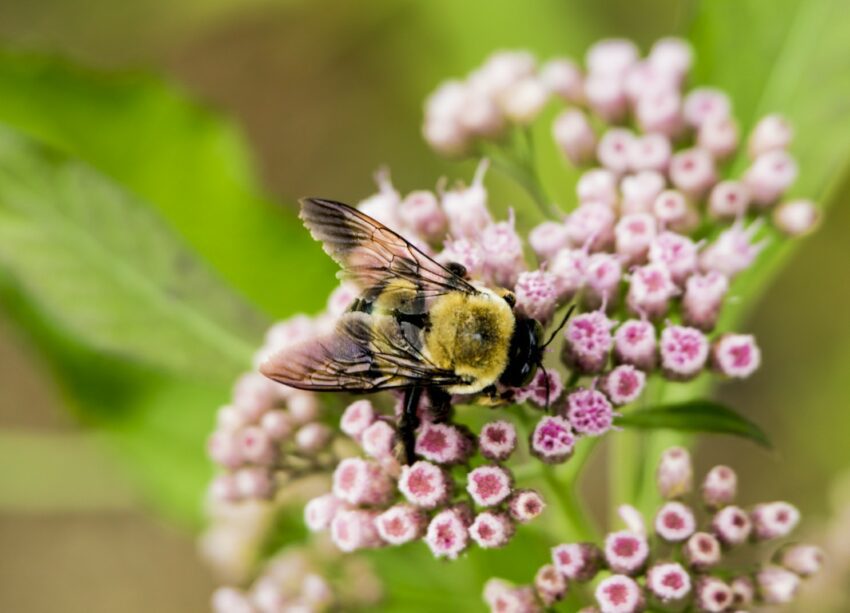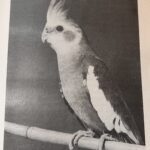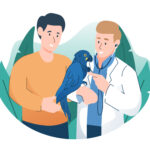
What about bee pollen?
The supplements section of a grocery store or health food store can be filled with over a thousand products, each with their own health claims. As a consumer, it can be hard to sort through it all, especially since there is little regulation in many countries.
This blog is about birds, though, which makes things even more difficult as you have to find reliable information that comes from research specific to birds. Having said that, what research is available on bee pollen? Turns out there are quite a few research papers, some of which are virtually incomprehensible.
One of my goals here is to distill the important bits from difficult to understand research. So, let’s see what has been said about bee pollen.
Bee pollen is one of the most useful therapeutic products favoured by natural medicine scientists because of its possible nutritional and medical applications. It exhibits many impacts such as antimicrobial, immunostimulating, antioxidants and hepatoprotective. Furthermore, bee pollen has some useful therapeutic features in numerous pathological situations such as its impact to normalize wound healing.
[…]
Also, bee pollen contains more nutrients, which stimulate faster differentiation and proliferation of the cells of immune system of birds.
Beneficial impacts of bee pollen in animal production, reproduction and health—Journal of Animal Physiology and Animal Nutrition—March 2019
So, that’s a general introduction to bee pollen and birds. This next paper is incredibly dense and details immune system components that are improved with bee products in quail. You may recall names like lymphocytes and heterophils if you’ve ever had comprehensive blood work done.
Findings of the current study in respect to heterophil and lymphocyte counts showed that significant decrease in H/L ratios was detected in all treated groups with bee products in comparison with control and [antibiotic] groups. This result could be due to the proliferation of lymphocytes in the groups receiving bee products. These results are consistent with some studies which reported the effect of honey bee product on heterophil, lymphocyte, eosinophil, monocyte, basophil and H/L ratio. These effects could be explained by the stimulatory effects of bee products on immune functions and improved immunocompetence of the birds
Effects of propolis, royal jelly, honey and bee pollen on growth performance and immune system of Japanese quails—Veterinary Research Forum—Winter 2016
Did you make it through that one? That was actually the most readable part. The final paper talks about the presence of specific nutrients.
The significant presence of carotenoids, as precursors of vitamin A, is one additional benefit of pollen.
There are several reports about significant presence of polyunsaturated fatty acids (PUFAs) in pollen samples. Among them, PUFAs were represented from 49.6% to 70.8%. Since a “healthy” product should have a ratio of unsaturated and saturated fatty acids higher than 1.6, all examined samples of the Portuguese pollen samples had proper ratios of 1.9–5.9.
Based on the literature data, pollen can be used as a Se source.
The average content of polyphenols in pollen is around 1.6% which defines it as an excellent source of these bioactive compounds. Among said polyphenols content, 1.4% are flavonoids, the most important pollen phenolic compounds. Some authors stated that the content of flavonol glycosides in pollen can be even higher, up to 5%—with the predominant location of these compounds being on the surface of the exine membrane of a pollen grain. The most abundant flavonoids in pollen are quercetin, kaempferol, and isorhamnetin and their derivatives.
The Application of Pollen as a Functional Food and Feed Ingredient—The Present and Perspectives—Biomolecules—January 2020
That only leaves one question. How much would I provide to my bird? Anecdotally, I’ve been told that you can’t really give too much, but I’ve used the guidance from one of these three papers.
Ethanolic extract of propolis 1000 mg/kg, pollen powder 1000 mg/kg, royal jelly 100 mg/kg, honey 22 g/L of drinking water.
Effects of propolis, royal jelly, honey and bee pollen on growth performance and immune system of Japanese quails—Veterinary Research Forum—Winter 2016
So, if you have a 100g cockatiel, that translates to 0.1kg—the research would calculate that to 10mg of royal jelly and 100mg of either bee propolis or bee pollen.

